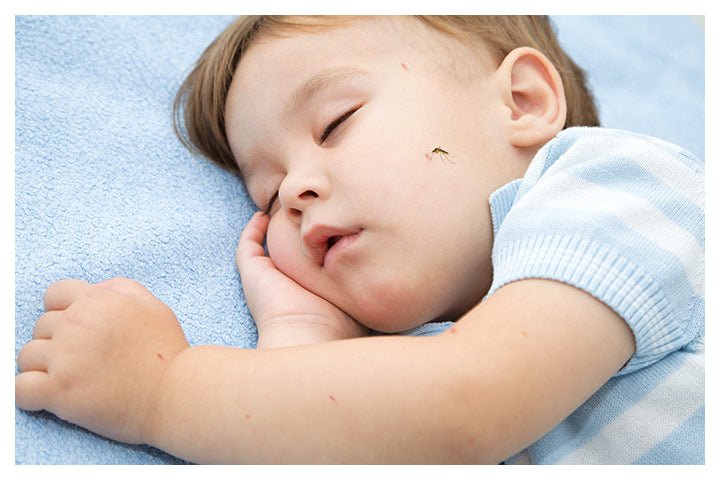
“In 2016, our family was greatly affected by Dengue. My son, my daughter-in-law and my youngest child all exhibited the symptoms of high fever, severe headache and decreasing platelets. Oleia Oil applied on the body, head, arms and legs many times was very helpful. The papaya leaf extract also kept them hydrated until they fully recovered. No blood transfusion.”– Oleia Ann
The Philippine Department of Health (DOH) declared a National Dengue Epidemic recently, due to the 167,607 dengue cases, reported from 1 January to 27 July 2019: 97% higher than in 2018, in spite of a delayed rainy season. The outbreak has already claimed the lives of 622 people. The group worst affected have been children below the age of 10.
These devastating numbers are just because of one fatal mosquito bite.
What is Dengue?
Dengue fever is a tropical disease caused by any one of four different types of viruses spread by Aedes mosquitoes. This mosquito-borne infection can lead to a severe flu-like illness. It can cause fever, headaches, rashes, and pain throughout the body. It is also called the “breakbone fever”, because of the severe bone and muscle pain it sometimes can cause. The fever isn’t actually breaking any bones, but it can sometimes feel like it is.

When an Aedes mosquito bites a person who has been infected with a dengue virus, the virus then enters the mosquito and can become a carrier of the virus. If this mosquito then bites another person, he or she can be infected with dengue fever. The virus can’t spread directly from person to person.
In rare cases, dengue fever can lead to a more serious form of the disease called dengue hemorrhagic fever (DHF). DHF can be life-threatening and needs to be treated right away.
What are the signs and symptoms
Sometimes, symptoms are mild and can be mistaken for those of the flu or another viral infection. However serious problems can develop if not treated early and properly. Symptoms vary depending on the severity of the disease.

Mild dengue fever
Symptoms can appear up to 7 days after being bitten by the mosquito that carries the virus. They include: aching muscles and joints, body rash that can disappear and then reappear, high fever, intense headache, pain behind the eyes, vomiting and feeling nauseous. Symptoms usually disappear after a week, and mild dengue rarely involves serious or fatal complications.
Dengue hemorrhagic fever
At first, symptoms of DHF may be mild, but they gradually worsen within a few days. As well as mild dengue symptoms, there may be signs of internal bleeding. A person with Dengue hemorrhagic fever may experience: bleeding from the mouth, gums, or nose, clammy skin, damage to lymph and blood vessels, internal bleeding, which can lead to black vomit and feces/stools, a lower number of platelets in the blood, sensitive stomach, small blood spots under the skin, weak pulse. Without prompt treatment, DHF can be fatal.
Dengue shock syndrome
DSS is a severe form of dengue. It can be fatal. Apart from symptoms of mild dengue fever, the person may experience: intense stomach pain, disorientation, sudden or fast drop in blood pressure (hypotension), heavy bleeding, regular vomiting, blood vessels leaking fluid. Without treatment, this can result in death.
The Department of Health has assured the public that hospitals and Local Government Units are ready to respond to the increasing number of cases as it continues to advocate for the 4S strategy:
- Search and destroy mosquito breeding places
- Self-protective measures like wearing long sleeves and use of insect repellent
- Seek early consultation on the first signs and symptoms of the disease
- Say yes to fogging if there is an impending outbreak
What can we do?
As of now, there’s no vaccine to prevent dengue fever (after the nationwide ban on the sale and distribution of the Dengvaxia vaccine) The best protection is to prevent bites by an infected mosquito. Make sure to do these prevention tips:
- Use screens on doors and windows, and promptly repair broken or damaged screens. Keep unscreened doors and windows shut.
- If sleeping areas are not screened or air-conditioned, use mosquito nets.
- Have kids wear long-sleeved shirts, long pants, shoes, and socks when they go outside, and use mosquito netting over their beds at night.
- Use mosquito repellents, even indoors. Apply insect repellent as directed on kids. Choose one with DEET or oil of lemon eucalyptus.
- Limit the amount of time kids spend outside during the day, especially in the hours around dawn and dusk, when mosquitoes are most active.
- Don’t give mosquitoes places to breed. They lay their eggs in water, so get rid of standing water in things like containers and discarded tires, and be sure to change the water in birdbaths, dog bowls, and flower vases at least once a week.
- If you have symptoms of dengue, speak to your doctor.
- If someone in your home gets dengue fever, be especially vigilant about efforts to protect yourself and other family members from mosquitoes. Mosquitoes that bite the infected family member could spread the infection to others in your home.
- Be sure to keep your immune system strong. Eat a diet high in fruits and vegetables, get enough sleep, and live a healthy and active lifestyle.
By doing these precautions and keeping away from areas that have a dengue fever epidemic, the risk of contracting the illness will be prevented.



